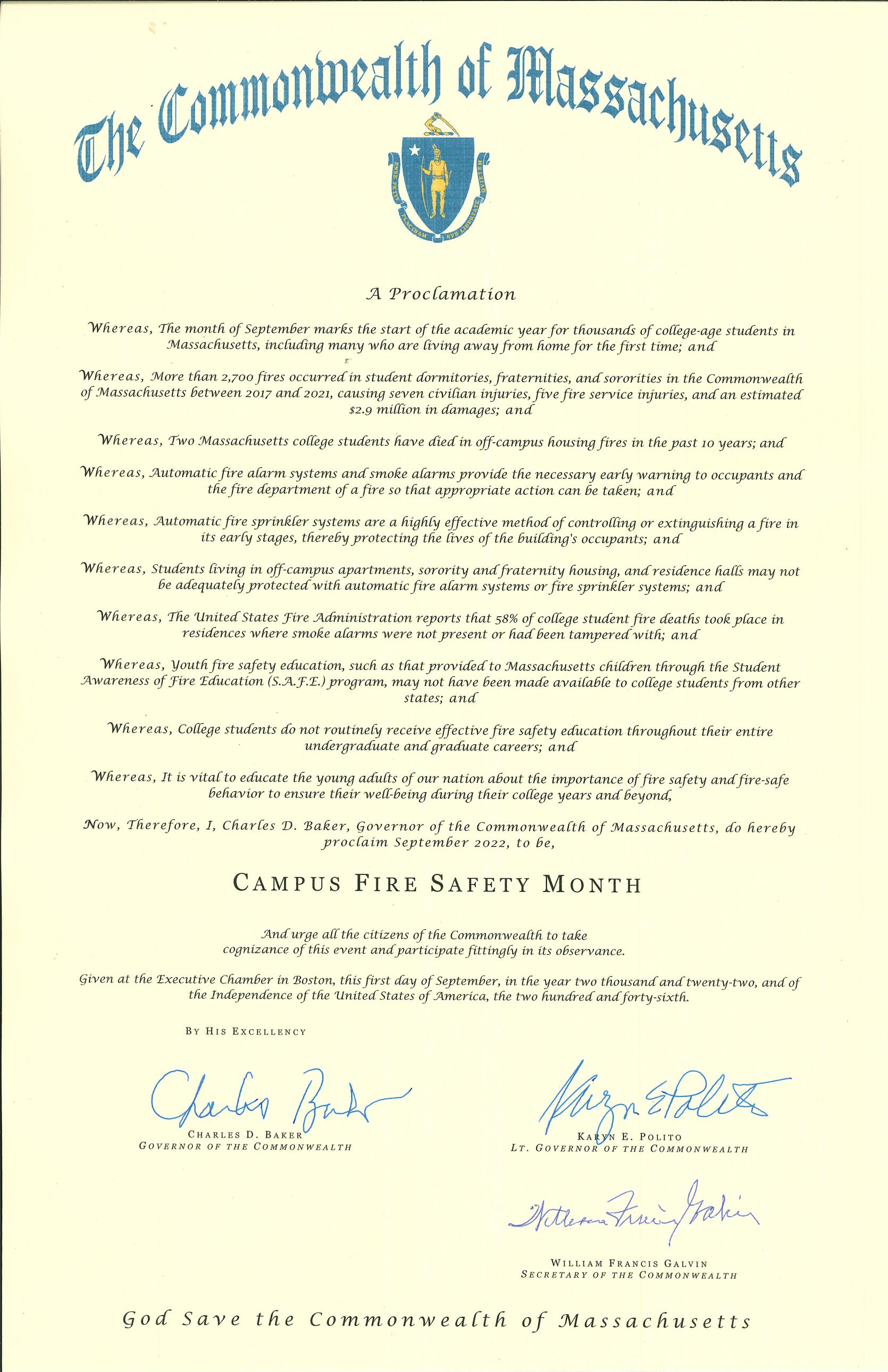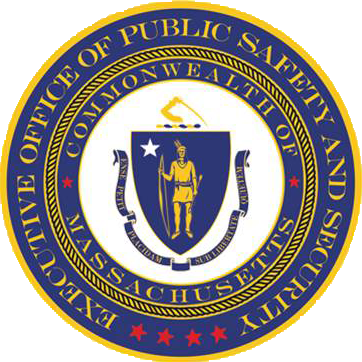- Department of Fire Services
- Executive Office of Public Safety and Security
Media Contact
Jake Wark, Public Information Officer

BOSTON — Governor Charlie Baker has declared September to be Campus Fire Safety Month in Massachusetts, and State Fire Marshal Peter J. Ostroskey is reminding students, landlords, parents, RAs, and others that working smoke alarms and two ways out of a dorm or apartment are key safety measures that could save lives in the event of a fire in student housing.
Nationwide, every residential fire to claim the life of a college student in more than 15 years has occurred in off-campus housing. This includes two Massachusetts students who died in off-campus housing fires in the past 10 years. In the past five years, there have been more than 2,700 fires in Massachusetts dormitories, sororities, and fraternities causing seven civilian injuries, five fire service injuries, and an estimated $2.9 million in damages.
“Thousands of young people will be attending college in Massachusetts this year, and many will be living away from home for the first time,” said State Fire Marshal Ostroskey. “We’re particularly concerned about off-campus housing because that’s where the data shows the greatest loss of life, but fire safety is critical whether you live in a dorm, apartment, single-family home, multifamily dwelling, sorority, or fraternity.”
Officials noted that fire safety precautions should remain in place after move-in day and beyond Sept. 30. Windows, doors, and stairways should always be clear of boxes, furniture, or anything else that might hinder an escape. Similarly, smoke and carbon monoxide alarms are required by law and should remain operational all year long.
“If your rental doesn’t have smoke and carbon monoxide alarms, insist on them,” said State Fire Marshal Ostroskey. “But don’t spend a single night unprotected in the meantime. For the price of a pizza, you can pick up smoke and CO alarms at a hardware store. They could save your life.”
Like other household appliances, alarms don’t last forever. Smoke alarms should be replaced 10 years after the manufacturing date printed on the back. Carbon monoxide alarms usually need to be replaced after five to seven years. If the alarm has replaceable batteries, the batteries should be changed twice a year, usually at the beginning and end of Daylight Saving Time. When choosing a replacement alarm, select one that has a sealed, long-life battery and a hush feature – this will reduce nuisance alarms and prevent the batteries from being used for another purpose, such as the television remote control. All alarms should be tested monthly.
“We see too many disabled smoke alarms in fires when people really needed them to work,” State Fire Marshal Ostroskey said. “Modern fires burn and spread faster than they did in past decades, and alarms without batteries put everyone in the building at risk.”
Working alarms and clear exit routes are crucial for when a fire breaks out, but students can also take steps to prevent them from starting in the first place. Leading causes of fatal fires in Massachusetts are:
- Smoking: There is no safe way to smoke, but if you must smoke then use a heavy ashtray or a pail with water or sand for cigarette butts. Don’t flick them on the ground, where they can smolder and ignite debris, or grind them out on porches or steps. Put it out. All the way. Every time.
- Electrical: Always plug appliances such as air conditioners and space heaters into wall sockets that can handle the current, not power strips or extension cords, and don’t overload outlets with multiple devices.
- Cooking: Stand by your pan! Don’t leave pots and pans unattended on a lit stovetop, and keep flammable items away from burners. In the event of a grease fire, smother the flames with a lid and then turn off the heat.
- Candles: Never leave candles burning unattended. Extinguish them before leaving the room. Even better, switch to battery-powered candles.
“Campus Fire Safety Month is a chance to raise awareness among young adults who may be living on their own for the first time,” said State Fire Marshal Ostroskey. “But everyone can contribute to fire safety in their homes and communities, in September and all year round.”
For more fire safety tips for both on and off campus, visit www.mass.gov/dfs.
###

